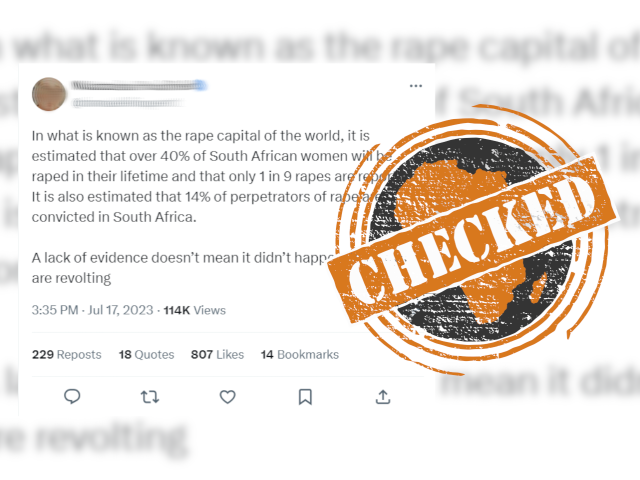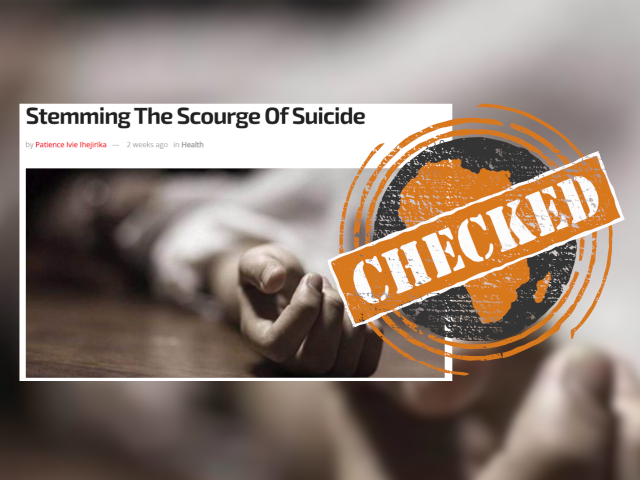Africa Check’s comments that the South African government inflates housing figures is unfortunate as it fails to properly research and respond to what the Constitution says and what the South African government has done to alleviate the plight of people requiring housing, housing opportunities and human settlements more broadly.
COMMENT: How South Africa’s top brass continue to inflate government housing figures and why it matters |
In the comment provided by Keegan Leech, he begins by making claims about comments made by me in a recent interview. He does not respond to the whole interview, but instead to a selected passage taken out of context. He also fails to actually quote the Housing right contained in our Constitution where Section 26 states that:
- Everyone has the right to have access to adequate housing.
- The State must take reasonable legislative and other measures, within its available resources, to achieve the progressive realisation of this right.
- No one may be evicted from their home, or have their home demolished, without an order of court made after considering all the relevant circumstances. No legislation may permit arbitrary evictions.
The Constitution certainly does not say that all housing must be provided by the State, but that the State must, within its available resources, achieve progressively the right to housing.
Interestingly, in his commentary, Leech does not produce one iota of evidence of the actual number of households benefiting from receiving an actual house provided by government, nor does he show evidence for how many households have benefitted from housing opportunities, which are clearly defined in policies, and nor does he provide evidence of how many households have benefitted from the building of human settlements, where water, electricity, sanitation, roads, transport, social and other community facilities have been provided to households to redress the terrible apartheid legacy. Instead, he quotes different figures and does not contextualise them.
His claim that he has “updated” figures disputing our figures is simply not true. What he does not say is that we have previously said we would be delighted to show him how these counts are done of the many programmes government is involved in to achieve progressively the realisation of the Section 26 rights.
'Challenges with housing counts'
We would certainly agree that there are challenges with “counts” of housing. In part, this is due to the fact that housing is a concurrent national-provincial function. In this regard, all housing counts (and information on who the beneficiaries are), is the responsibility of each of the provinces. Until 2008, there was no integrated system recording housing projects, beneficiaries and the like as this was done provincially.
Since then, the Department of Human Settlements at a national level has strived to update, monitor and evaluate the housing delivery system where provinces input data on the number of projects and beneficiaries.
We have also stated transparently that we are taking steps to address corruption, nepotism and the like in the provision of housing and housing opportunities.
We are glad that Africa Check notes that our existing systems indicate that over 4.8 million beneficiaries have been recorded since 1994. However, Africa Check’s attempt to conflate housing provision, the provision of housing opportunities, and Leech’s failure to record also the tremendous contribution made by government to provide human settlements as a whole is unfortunate and we have tried to explain that.
We do agree that the terminology is confusing and we prefer to rather focus on the actual deliverables, itemised by programmes. In this regard, the facts are that the numbers we have records of (from 1994 until 31 January 2024) include the following deliverables:
- Hostel/CRU Units: 74075
- Social/Rental/Institutional housing: 141634
- FLISP: 36607
- RDP/BNG Houses: 3261428
- Services sites completed: 1345346
- EEDBS (pre 1994 housing converted to ownership): 372474
- Total: 5231564
As indicated above, provinces record these and report on them, including through audits each year, and these are what we now have on our system.
A map showing the location of these is provided below.
It should also be noted that given climate variability, there are many beneficiaries of temporary housing, building materials and the like and we do not have full records of these beneficiaries available. The reason for this is that these are provided by all three spheres of government and reported on separately - of people who received housing benefits in cases of floods, wind damage and other emergencies and disasters.
As Minister, I am committed to ensuring transparency in achieving the goals set by Section 26 of the Constitution. In this regard, we are both undertaking a review of beneficiaries, requesting Provinces to update the records on the system and also in the process of reviewing and then developing a system which would allow for far easier project management, needs assessment and beneficiary approval. This would further allow for a far more transparent project management, monitoring and evaluation to be undertaken.
|
Mmamoloko Kubayi is the Minister of Human Settlements, a member of the ANC NEC and Chairperson of the Economic Transformation Subcommittee of the ANC. |





Add new comment